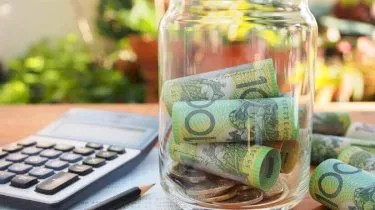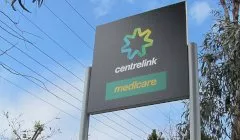Save
Dividend imputation reform could have ‘unintended consequences’
Should Labor’s proposal to reform dividend imputation policy be realised, investors who don’t change their asset allocation are “essentially disadvantaging themselves”, a finance academic has said.
Dividend imputation reform could have ‘unintended consequences’
Should Labor’s proposal to reform dividend imputation policy be realised, investors who don’t change their asset allocation are “essentially disadvantaging themselves”, a finance academic has said.

Speaking on a University of Sydney Business School briefing, Andrew Ainsworth, senior lecturer of finance discipline, said it’s clear that franking credits are valued.
“For investors that can no longer get the cash refund for these unutilised credits, if they don't make a change to their asset allocation, well they're essentially disadvantaging themselves,” he said.
His comments follow the Labor Party’s proposal to abolish the cash refunds paid to non-taxpaying shareholders in place of dividend imputation credits.
Fellow commentator, associate professor of finance Graham Partington, said the “rational response” would be for investors to move out of Australian stocks.

However, the behavioural response could be a different matter.
“The other point there is maybe they'll start moving into stocks that aren't paying fully franked dividends if they're not getting that,” Mr Ainsworth said.
“Even within the market I think there will be some shifts.”
He said the “unintended consequences” of a change could extend to effects on prices, the cost of capital as well as changing asset allocation trends.
“It's highly likely that investors will want to change their investment portfolios. This leads to a series of questions, if they're going to be selling, who's going to be buying?” he questioned.
“Is it other domestic investors, is it foreign investors? What's going to happen to the price of stocks in the market?”
Mr Ainsworth argued that if the estimated saving is $8 billion, there’s a question around who will buy in the case of a sell-out and the impact this will have on the cost of capital.
“Are prices going to fall? Is that likely to increase the cost of capital for companies and if they do sell to other domestic tax paying investors, what's going to be the proportion of franking credits that are going to be saved? If other investors are buying these stocks and utilising these credits then maybe this $8 billion isn't going to be as big as the government thinks,” he said.
Mr Ainsworth said these questions will need to be considered should Labor win the next election and enact the new system.

Tax saving
$20,000 instant asset write-off extension welcomed, but calls for broader support grow
The Australian government's decision to extend the $20,000 instant asset write-off into the next financial year has been met with approval from business leaders. However, there are growing calls for ...Read more

Tax saving
The downsizer dividend: How targeted tax levers could unlock housing supply in Australia
A call by Raine & Horne to incentivise seniors to move to smaller homes has kicked off a wider policy conversation that reaches well beyond real estate. If designed well, a targeted package could ...Read more

Tax saving
Raine & Horne's bold move could unlock housing supply but what are the hidden risks
Raine & Horne’s call for targeted tax incentives to encourage empty nesters to ‘rightsize’ isn’t just another sector wish list; it’s a potential lever to free up family homes, ease rental ...Read more

Tax saving
From annual check-ups to always‑on: how modern portfolio reviews unlock after‑tax alpha
The era of once‑a‑year portfolio check‑ins is over. Continuous, tech‑enabled reviews now drive returns through tax efficiency, risk control and behavioural discipline—especially in a high‑rate ...Read more

Tax saving
Navigating tax laws for capital gains in 2023
The landscape of Australian tax laws surrounding capital gains is ever-changing, with 2023 being no exception. Read more

Tax saving
What you need to know about the tax implications of crypto
One million Aussies are now invested in crypto, but many have not thought about how these investments will affect them at tax time. Read more

Tax saving
Welfare overhaul could give recipients a leg-up
Australia’s Centrelink recipients who’ve been doing it tough are in for a potentially easier time if the federal government pursues ambitious reforms that could provide sturdier safety nets. Read more

Tax saving
Students should think twice before tapping into their super
Former students might want to think carefully before they look to take advantage of the federal government’s biggest first home buyer incentive. Read more

Tax saving
$20,000 instant asset write-off extension welcomed, but calls for broader support grow
The Australian government's decision to extend the $20,000 instant asset write-off into the next financial year has been met with approval from business leaders. However, there are growing calls for ...Read more

Tax saving
The downsizer dividend: How targeted tax levers could unlock housing supply in Australia
A call by Raine & Horne to incentivise seniors to move to smaller homes has kicked off a wider policy conversation that reaches well beyond real estate. If designed well, a targeted package could ...Read more

Tax saving
Raine & Horne's bold move could unlock housing supply but what are the hidden risks
Raine & Horne’s call for targeted tax incentives to encourage empty nesters to ‘rightsize’ isn’t just another sector wish list; it’s a potential lever to free up family homes, ease rental ...Read more

Tax saving
From annual check-ups to always‑on: how modern portfolio reviews unlock after‑tax alpha
The era of once‑a‑year portfolio check‑ins is over. Continuous, tech‑enabled reviews now drive returns through tax efficiency, risk control and behavioural discipline—especially in a high‑rate ...Read more

Tax saving
Navigating tax laws for capital gains in 2023
The landscape of Australian tax laws surrounding capital gains is ever-changing, with 2023 being no exception. Read more

Tax saving
What you need to know about the tax implications of crypto
One million Aussies are now invested in crypto, but many have not thought about how these investments will affect them at tax time. Read more

Tax saving
Welfare overhaul could give recipients a leg-up
Australia’s Centrelink recipients who’ve been doing it tough are in for a potentially easier time if the federal government pursues ambitious reforms that could provide sturdier safety nets. Read more

Tax saving
Students should think twice before tapping into their super
Former students might want to think carefully before they look to take advantage of the federal government’s biggest first home buyer incentive. Read more













